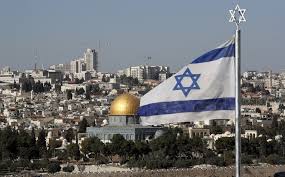Yesterday, 13th May, was Israel’s ‘Independence Day’. Frank Krishner in this piece examines the concept of Zionism.
As Israel commemorates its 76th anniversary against the grim backdrop of recent violence and unrest, the essence of Zionism stands under scrutiny. In the cacophony of discourse surrounding Zionism, the term has been both distorted and weaponized, painted as a symbol of exclusivity and oppression. To grasp the complexities of Israel’s trajectory and the challenges it faces today, it is imperative to dissect the multifaceted history and interpretations of Zionism.
At its core, modern Zionism emerged in the late 19th century as a national movement, akin to contemporaneous movements among various peoples seeking self-determination. At that time, Zionism did not inherently entail superiority or denial of others’ rights. Rather, it asserted the Jewish people’s right to a homeland, recognizing their historical ties and collective identity. This acknowledgment does not preclude the recognition of Palestinian nationhood or the rights of individual Palestinians.
However, the equation of Zionism with racism persists despite the United Nations’ 1991 revocation of a previous resolution to that effect. Such claims t are themselves tinged with bigotry. Proscribing Zionism delegitimizes Jewish national aspirations, perpetuating discrimination. Calls for violence against Zionists underscore the dangerous rhetoric that lurks within these misrepresentations.
It is crucial to acknowledge the diversity within Zionism, ranging from maximalist to more pragmatic views. Figures like David Ben-Gurion supported compromises for coexistence, such as the 1947 U.N. partition plan. Over time, the “two-state solution” gained traction among Israelis as a pathway to peace, though support has waned in recent years.
The proposal of a one-state solution, while theoretically appealing, faces formidable historical hurdles. Attempting to impose unity on deeply divided ethnic groups risks exacerbating conflict and instability. The challenge lies not in the idea’s theoretical merits but in its practical implementation within the fraught context of Israeli-Palestinian relations.
Moreover, the evolution of Zionism reflects a shift from exclusively Jewish to broader Israeli identity. This transition underscores the complexity of national identity and its intersection with historical narratives. Movements like Meretz advocate for an inclusive Israeli state, transcending narrow ethnic boundaries.
However, recent Israeli governance under Netanyahu’s coalition represents a departure from moderate Zionism. The rejection of the two-state solution in favor of exclusivist policies undermines prospects for peace and perpetuates injustice. The devastation inflicted on Palestinian communities underscores the urgent need for a reevaluation of Israel’s trajectory.
Critics who conflate Zionism with extremism overlook its nuanced history and potential for inclusivity. Patriotism should not be equated with bigotry; rather, it embodies a commitment to collective welfare and shared values. Embracing a more tolerant and inclusive vision of Zionism offers a viable alternative to Netanyahu’s divisive rhetoric.
The stakes extend beyond Israel’s borders, implicating the global Jewish community. Succumbing to bigotry would tarnish Judaism’s legacy of universal justice and humanism, aligning it with intolerance and violence. Non-Zionist Jews grapple with the collective nature of Judaism and its historical ties to Israel, highlighting the interconnectedness of Jewish identity and national aspirations.
Ultimately, the fate of Zionism hinges on its ability to reconcile historical ideals with contemporary realities. Herzl’s vision of a democratic and inclusive Jewish state remains relevant, offering a blueprint for navigating the complexities of Israeli society. As Israel charts its course forward, it must heed the lessons of history and embrace a vision that upholds the values of tolerance, equality, and human dignity.
THE OPINIONS EXPRESSED IN THIS COLUMN ARE ENTIRELY THOSE OF THE AUTHOR AND ARE NOT NECESSARILY SHARED BY THE NEWSNET EDITOR, PUBLISHER, OR STAFF



